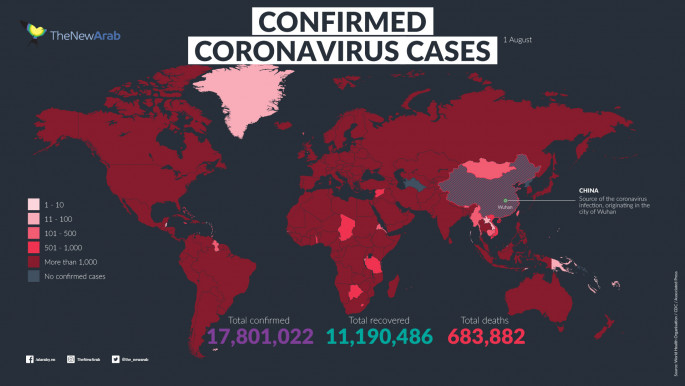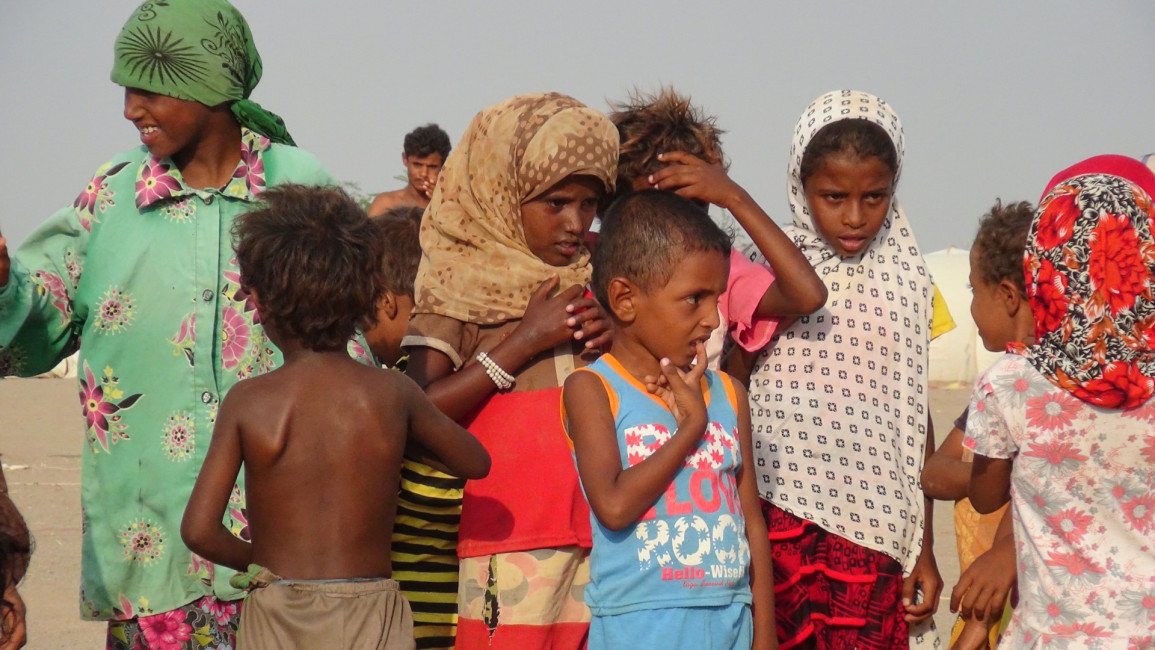UK says it will help pay thousands of Yemeni teachers' salaries
UK says it will help pay thousands of Yemeni teachers' salaries
The UK government has pledged to help thousands of teachers in the poorest refugee-hosting countries in the world.
3 min read
Hundreds of thousands of children are in need of education [Getty]
The UK government has announced millions of pounds in aid to support the salaries of more than 5,500 teachers in ten of the world's poorest refugee-hosting countries, including Chad, South Sudan, and Yemen.
Actor and activist Angelina Jolie joined Baroness Sugg, the UK’s Special Envoy for Girls' Education, in announcing £5.3 million in aid for refugees during the coronavirus epidemic.
"For millions of children and youth, schools are a lifeline of opportunity as well as a shield," said Angelina Jolie, Special Envoy for the UN Refugee Agency, UNHCR.
"Classrooms offer protection - or at least a reprieve - from violence, exploitation and other difficult circumstances."
The much-needed injection of funds comes as refugees are disproportionately impacted by the Covid-19 pandemic, which has swept across the world killing hundreds of thousands of people.
The pandemic has also disrupted the education of children around the globe.
"Education must be prioritised in the global recovery from coronavirus," Baroness Sugg said.
"This epidemic is not just a health crisis, it is an education crisis, especially for refugee children. Without school and an education they will be unable to rebuild their lives and achieve their full potential."
|
The digital event is co-hosted by the UK and Canada, alongside UNHCR and UNESCO.
The importance of education
Of the world's 26 million refugees, around half are aged under-18.
Before the coronavirus pandemic, refugee children were twice as likely to be out of school than other children, with fewer than 1-in-4 refugee children enrolled in secondary education.
Read more: Fighting for an education: How children in the Middle East are learning under lockdown
UNICEF recently launched a novel learning tool that is being expanded in light of Covid-19: "The Learning Passport".
"The learning passport is a partnership between UNICEF, Microsoft and the University of Cambridge and it's a tool to provide quality education to vulnerable children," Robert Jenkins, Chief Education and Associate Director told The New Arab.
"It's a very flexible tool – it has the capacity to work offline, so children can be reached in a variety of environments, and it is tailored to local curriculums. Sometimes our education partners want to tailor the tool for teachers to more effectively deliver their curriculums.
"In other cases it's in addition to teachers or even straight to students as a learning tool. It has depended on the environment and the context. It's a tool that is filling gaps – it's powerful and flexible."
Jenkins added that some countries in the region are also using radio, mobile phone apps, and IT tools to reach children in an online environment.
 |
Follow us on Facebook, Twitter and Instagram to stay connected


![Minnesota Tim Walz is working to court Muslim voters. [Getty]](/sites/default/files/styles/image_684x385/public/2169747529.jpeg?h=a5f2f23a&itok=b63Wif2V)




![Debris near Rafic Hariri International Airport [Getty]](/sites/default/files/styles/image_212x120/public/2176162423.jpeg?h=a5f2f23a&itok=XLiO6WHk)
![An Israeli air strike on Jabalia killed teenage journalist Hassan Hamad [Screengrab/X]](/sites/default/files/styles/image_330x185/public/2024-10/hassan%20hamad1.jpg?h=c12e0b96&itok=Rd_dyCVp)
